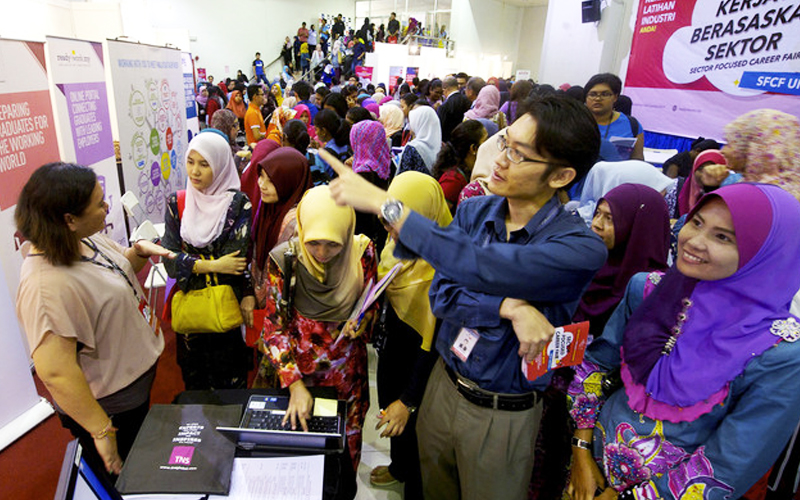Context: In Malaysia, there has been a gradual increase in the youth unemployment rate since 2015 and, most recently (2020), it was recorded to be 12 per cent. Due to the COVID-19 pandemic, economic activities are expected to be affected, particularly with regard to youth who have completed their studies and are set to enter the job market amidst the pandemic. Therefore, programmes to increase their marketability and efforts to help them (including graduates) gain experience have been implemented as one of Malaysia’s responses to the pandemic.
Implementation of programme/ initiative: The National Apprenticeship Scheme (SPN) is a programme launched in July 2020 by the Malaysian Government’s Ministry of Youth and Sports, Ministry of Works and Ministry of Human Resources to address the current high unemployment rate. This programme is offered to apprentices aged under 35. The multi-ministry collaboration aims to boost the employability of youth with no job experience and provide opportunities for training and work. The objectives of the programme include:
- Increasing marketability through “soft skills” and on-the-job training, including public speaking, writing techniques, negotiation skills, critical thinking and resolving disputes;
- Providing a support system to assist apprentices in getting jobs;
- Helping to reduce the unemployment rate among the youth;
- Having 5,000 people sign up, based on the Human Resources Development Fund’s “place and train” concept.
Apprentices are to get a mobility allowance if they are transferred or move to a workplace over 100km away. Those moving within the peninsula, Sabah, Sarawak or Labuan are to receive MYR600 (USD150), while those moving from East Malaysia to West Malaysia, or vice versa, are to receive MYR1,000 (USD250). Companies participating in the SPN programme can, for up to six months, also claim wage subsidies under the Penjana initiative of MYR600 per person from the Social Security Organization, and training subsidies from the Human Resources Development Fund of MYR4,000 (USD990) per person.
Main challenges: As a result of the pandemic, large numbers of companies and businesses have had to shut down because of no longer being able to afford to operate, and many more people have lost their jobs and incomes. New graduates have been among the hardest hit due to the absence of job opportunities. Many companies want workers with experience which leads to fresh graduates being cast out as applicable candidates. Although the SPN programme may help reduce the youth unemployment rate in the short-term, government entities still face the issue of increasing unemployment in the long-term, during which further initiatives may need to be taken.
Results achieved: Already, 67 companies are participating in the SPN programme and several more have signed up to participate. These include companies registered under the Human Resources Development Fund and InvestKL partners. As of November 2020, a total of 397 people have participated in the training, with 376 landing job placements; the programme stands at having a 94.7 per cent success rate and this is expected to increase.
Moving Forward: The SPN programme hopes to have more participants, as mentioned in the objectives, aiming to help 5,000 or more apprentices. The programme is also eager to help more companies, particularly those without funds, to train their future workers, while helping other companies currently in need of workers. At the same time, graduates without job experience have a better chance of gaining employment and being more qualified to enter the work force.
Replicability: The SPN programme highlights the need to support youth populations in Malaysia and emphasizes the importance of their contribution in the national post-pandemic economic recovery; this is a value that needs to be considered in other COVID-19 response initiatives. The programme bridges the gap between unemployed youth and companies in need of workers; this demonstrates how other companies need to be more considerate of candidates with no job experience and offer more opportunities to broader populations for the benefit of the future economy, along with shared prosperity.
Acknowledgement:
This good practice was kindly prepared by Ms. Alysha Brahmantiara Putri.
References:
Project Details
Date: January 19, 2021
